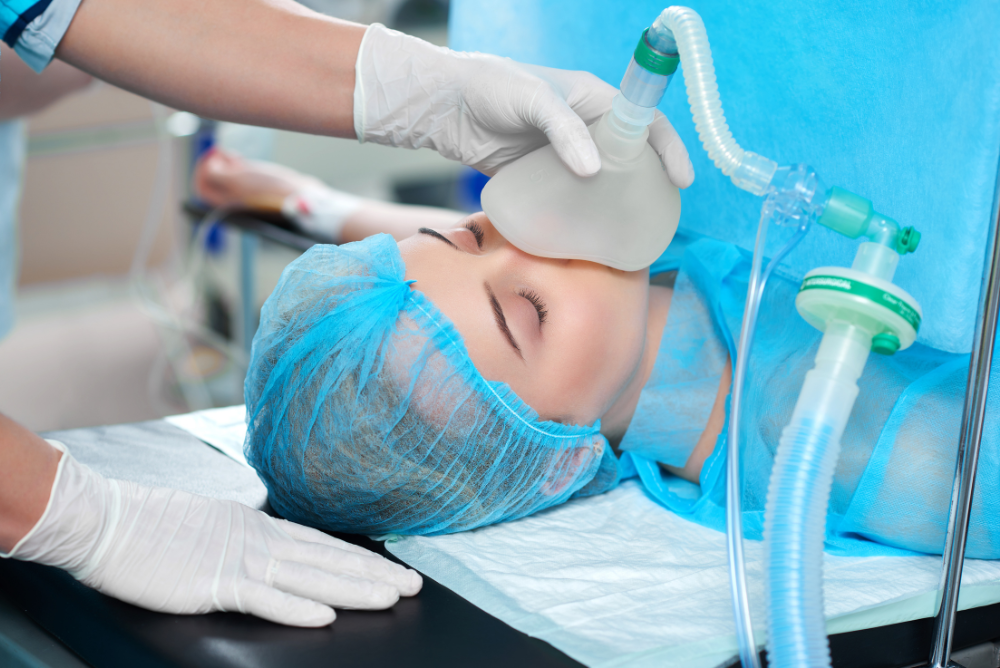A common question among patients preparing for Sedation Dentistry in SE Calgary is whether they can eat or drink any food or beverages before their appointment.
The safest answer is no. Under most circumstances, you should not eat or drink anything for several hours before your procedure, depending on the sedation. chosen.
This measure will help ensure your safety and comfort during treatment. In this blog, we will discuss the reason for that, what to expect and how to prepare for the same to have a smooth and stress-free experience.
What Is Sedation Dentistry and Why Is It Used?
Sedation dentistry near you is designed to provide relaxation during dental procedures. It’s helpful for someone who feels anxious about visiting the dentist.
It’s also great for people with a sensitive gag reflex. Lastly, it is also useful for anyone requiring long dental treatments.
Dentists use safe and regulated medications to keep patients relaxed and awake. The aim is for the experience to be comfortable for you, and not to make you unconscious. Unless, of course, general anesthesia is on the cards.
Common reasons that People Choose Sedation Dentistry:
- Dental anxiety or fear
- Low pain tolerance
- Sensitive teeth or gums
- Difficulty sitting still for long periods
- Multiple procedures in one visit
What Happens During Dental Sedation?
Your dentist will explain the dental sedation process in detail before your procedure. Sedation is available in various intensities. Before your appointment, they each affect your ability to eat or drink.
The main stages of dental sedation include.
- Minimal sedation: You stay awake but calm.
- Moderate sedation (conscious sedation): You may feel drowsy and remember little about the procedure.
- Deep sedation: You are almost asleep but can be awakened.
- General anesthesia: You are completely unconscious.
Depending on your medical history and the procedure, your dentist will decide which one is better.
Understanding the Role of a Sedation Dentist
A sedation dentist is trained to manage sedation safely. Your breathing, heart rate, and blood pressure will be monitored during treatment.
If you have ever had or drunk something close to your appointment time, this could pose a risk to having sedation. Your body may not act appropriately when sedated, which could make you vomit or aspirate.
For that reason, your dentist will provide you with the instructions on fasting times.
Types of Sedation Used in Dentistry
Different types of sedation used in dentistry require different levels of preparation. Here’s a simple breakdown:
| Type of Sedation | How It’s Given | Fasting Required? | Common Use |
| Nitrous Oxide (Laughing Gas) | Inhaled through a mask | Usually no fasting | Quick, mild relaxation |
| Oral Sedation | Taken as a pill | Yes, 6–8 hours before | Moderate relaxation |
| IV Sedation | Injected into the vein | Yes, 8 hours before | Deep relaxation for longer treatments |
| General Anesthesia | Administered by an anesthesiologist | Yes, 8–12 hours before | Complex or surgical cases |
Always pay close attention to what your dentist says about fasting. Their advice is based on what type of sedation you will be receiving.
Why Fasting Is Important Before Sedation
Your body won’t respond to the sedation correctly if you’re eating or drinking beforehand. The biggest issue is vomiting or aspiration, which is risky under sedation.
An empty stomach provides a clear environment, and your treatment will be safer and more predictable. Your dentist may ask you to do the following:
- Don’t eat or drink for 6–8 hours before your visit
- Skip alcohol or caffeine the night before
- Take the prescribed medication as directed by the dentist
Aftercare Tips from a Dentist in SE Calgary
Once done with your procedure, your SE Calgary Dentist will advise you on how to stay safe during recovery. You may experience drowsiness or dizziness for a few hours, so it is best to:
- Arrange a ride home with a trusted adult
- Rest for the remainder of the day
- Eat only soft foods after the numbness wears off
- Do not drive, drink alcohol, or engage in heavy activity until you are fully alert
Following these tips will help you recover fast and lower the risk of complications.
Long-Term Benefits of Sedation Dentistry
If you find a dentist near you who offers sedation, you may be able to access the dental care you need. When you are no longer afraid of the dentist, you are more likely to.
- Maintain regular checkups
- Prevent cavities and gum disease
- Complete treatments that improve your oral health
- Build confidence in your dental visits
Sedation dentistry is about stress-free dental work that allows the patients and dentists to do their jobs without worry.
Wrapping Up!
Following eminent pre-sedation instructions plays a pivotal role. No matter how anxious you are or if you’re here for a more complex procedure, Concept Dentistry has the care and sedation you can trust to meet your individual needs.
Relax. Smile. Heal with professional sedation care,






